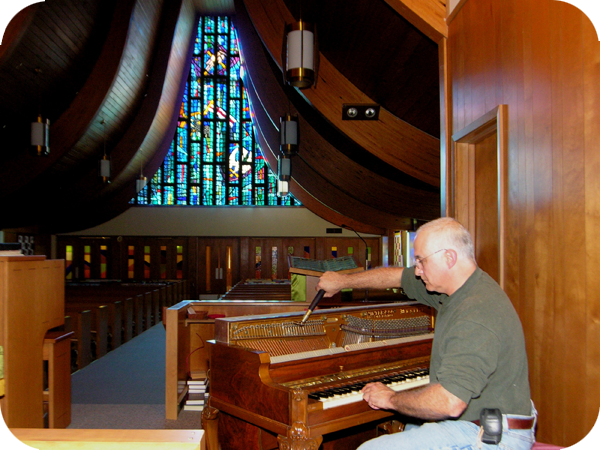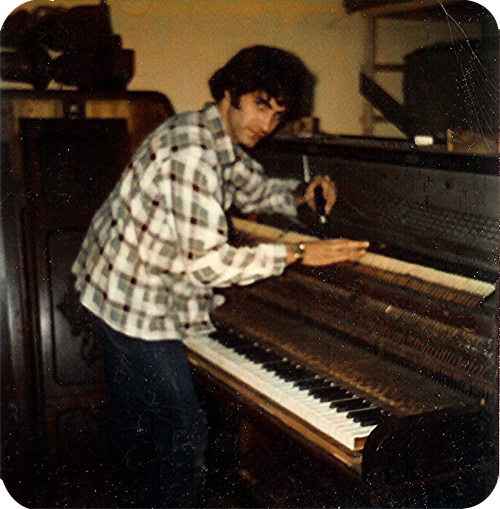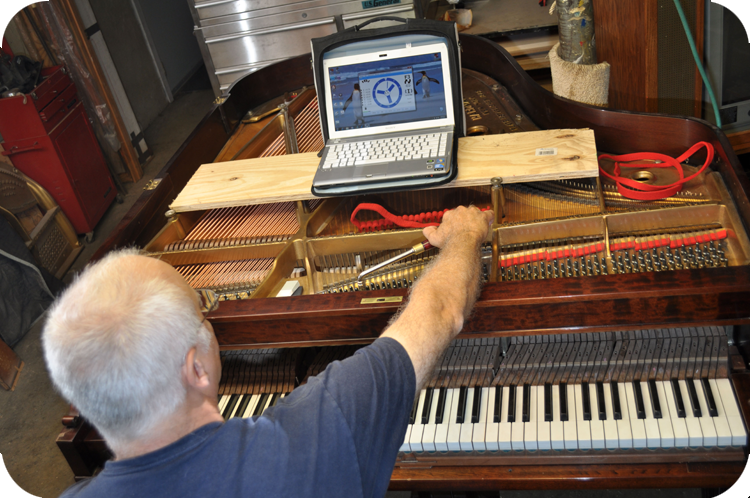
Complete Piano Service
816-587-1544
Piano manufacturers like Steinway and Sons and Yamaha
(as well as Wikipedia) concur that a piano should be tuned
at least twice a year. There are three basic reasons why
they
need to be tuned so frequently.
• Humidity
• Temperature fluctuations
• Age of the piano
The humidity issue can best be explained with a seemingly
unrelated example. During the summer my basement door
is so tight, I have to nudge it with my shoulder to open
it. During the winter, when I wish it was tight, I can see
daylight around the jam. The wood acts like a sponge. It
swells as it soaks up humidity during the summer and it
shrinks as it dries out during the winter. Since pianos are
predominantly wood they too go through seasonal expansion
and contraction.

( 2007 )
Pianos also use metal in their construction. They have copper bass strings
and steel treble wire and both are stretched over a cast iron plate. These
different metals have different temperature expansion coefficients. As
the temperature fluctuates, the metals expand and contract differently
from each other.
Tuning pins, that hold the strings, are driven into a wooden plank called a
pinblock and held in place by friction. As the piano ages, the pinblock
holes ream out from the constant string tension. The result of which are
loose tuning pins that don't stay in place for long.
I did not mention playing the piano as a cause of tuning instability. Unless
you pound on it like a chimpanzee, it's a non issue. They were designed and
built to be played!
All things considered, it's a minor miracle that pianos stay in tune
as well as they do.

( 1973 I can still remember hair! )

(2019)